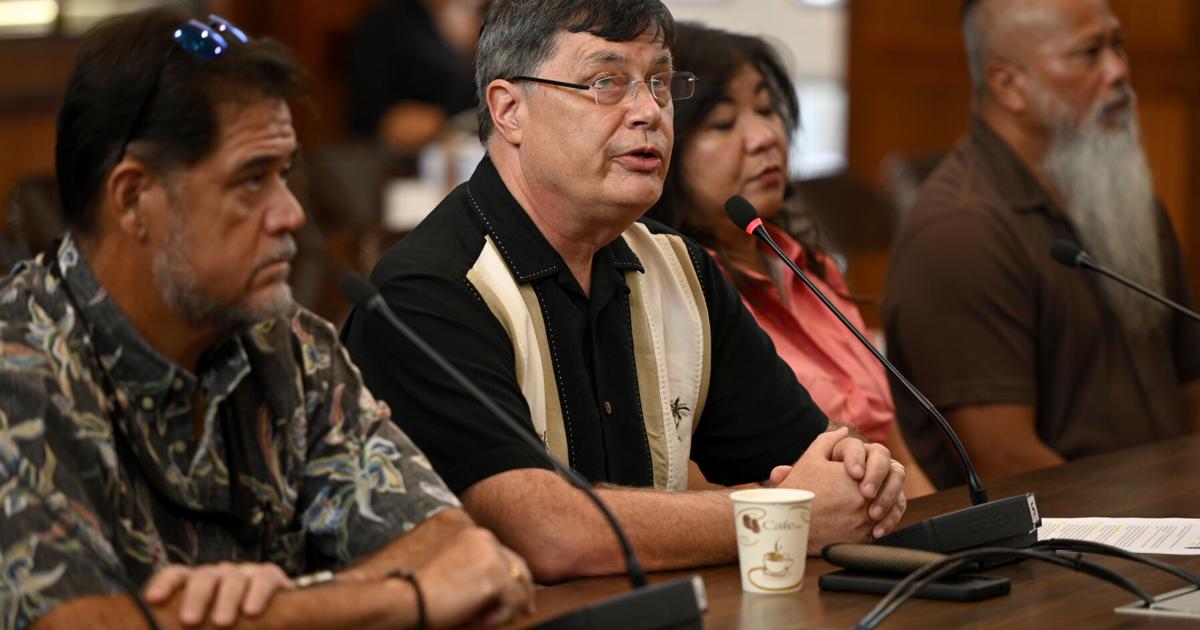Copyright guampdn

Guam Solid Waste Authority General Manager Irvin Sike will get an $18,200 pay increase and a two-year contract extension following a performance evaluation that the GSWA board unanimously approved. The salary adjustment will bump Slikes’ pay from $182,000 annually to $200,200. His employment contract with GSWA will be extended through 2027. Slike also provided updates on efforts to roll out mandatory, islandwide trash collection and get a mobile car crusher in use to deal with Guam’s junk vehicle problem. Members of the GSWA board went into a closed-door executive session last Thursday to evaluate Slike’s performance. They voted on the approval after reconvening the meeting in public. “He hasn’t had an increment in two years,” GSWA Board Chairman Andrew Gayle said of Slike. “And we think, based on his performance evaluation, that this increase is warranted and justified.” After the 10% pay bump, Slike’s salary is comparable to the general managers of other GovGuam autonomous agencies that bring in their own cash, according to Gayle. GSWA Board Member Minakshi Hemlani said salaries for the heads of the Guam Waterworks Authority, Guam Power Authority and Port Authority of Guam were reviewed. Hemlani said Slike’s new salary is “modest in comparison, and certainly worth the services.” Gayle said the pay bump also lines up with the work that Slike will perform in the upcoming years, like islandwide trash collection, and closing out a transfer of operations at the old Ordot dump from a federal receivership to full control by GSWA. Since taking the helm of Solid Waste Authority in 2021, Slike has pushed for the authority to start saving to keep its aging fleet of garbage trucks repaired and replaced, get residential trash collection collected on-time, make trash collection mandatory for every household and to regain control of the old Ordot dump. He’s also recently secured a mobile car crusher to help Guam deal with its widespread junk vehicle problem. Here’s how the heads of other revenue-generating GovGuam agencies are compensated, based on PDN files and staffing documents: GPA General Manager John Benavente, $243,360GWA General Manager Miguel Bordallo, $233,265Port Authority of Guam General Manager Rory Respicio, $207,394Guam International Airport Authority Executive Manager John Quinata, $181,524 The Consolidated Commission on Utilities gave GWA’s Bordallo a $38,939 pay raise for good performance in November 2024, while GPA’s Benavente got a $9,360 pay bump. Respicio got a $9,000 increase from the Port board in April 2024 for “exceptional” performance. Islandwide collection Slike on Thursday provided an update on the push to get mandatory, islandwide trash collection going. He said plans are still on track to drop trash rates from $35 a month to $22, once rollout is done around 2027. More customers will mean GSWA can spread out costs and drop rates. GSWA got approval for mandatory trash collection through a law passed by senators and signed by the governor in August. The general manager said he’s aiming to get an agreement secured with GWA by December, so Solid Waste can use water billing data to figure out who will need to sign up for trash service with GSWA or a private company. An estimated 20,000 households will have to sign up once mandatory trash collection rolls out. Final rules and regulations for the program should be finalized by January, with approval coming later next year, according to Slike. Rules will cover, among other things, any fines or fees for customers who don’t comply with the law. Slike said GSWA plans to move from a four-day to a five-day-a-week trash collection schedule by next April, in preparation for the mandatory service. Recyclable collection will move to pick up on the same day as trash collection, instead of the current bi-monthly collection, he said. As for the estimated 40,000 trash carts GSWA needs for the mandatory collection rollout, Slike’s presentation showed delivery is expected between December 2026 and January 2027. GSWA board’s Gayle said the authority wants to use a portion of a $4.5 million Ordot dump expense account now being used by the receiver running operations at the dump. Slike showed it will cost Solid Waste an estimated $1 million in fiscal year 2027 and 2028 to rollout mandatory collection, between hiring extra customer service staff, increased supplies, and other expenses. Gayle said the expected increase in revenue should offset the costs. Car crusher faces new challenge A pilot program to crush junk vehicles around Guam and ship them off-island to scrappers was successful, with neither the shippers nor metal processors reporting any issues, Slike reported. But Slike said the car crusher won’t be in use until another government of Guam agency steps forward to take the lead on abandoned or junk vehicle cleanup, and reimburse GSWA for the car crusher. Solid Waste purchased the $480,000 machine earlier this year to help deal with junkers. Slike last Thursday said another $50,000 has been spent figuring out how to get rid of junk vehicles. But Chairman Gayle stressed that Solid Waste’s job is to dispose of municipal waste, not to be taking junk vehicles off the street. “We’ve expended some of our resources, but our resources are limited. We can’t take the lead. We can participate, and we can help utilize equipment,” Gayle said. “But Irv, I don’t think that Guam Solid Waste Authority’s role is to be the lead in this.” The Mayors’ Council of Guam has, for years, handled removal of junk vehicles left on the roadside and villages but they “washed their hands” of the effort, Gayle said. Mayors voted unanimously last month to stop taking the lead on junk vehicle removal. Besides the mayors, both the Guam Environmental Protection Agency and Department of Public Works were made responsible for removing junk vehicles through a change in the law last year. Slike on Thursday said there’s been no agreed upon process for removing junkers yet. He said he’d provided contract language and rental costs to both Guam EPA and the administration for use of the car crusher. Shipping a vehicle costs about $200, while off-island scrappers will pay $100 per car, he said.



